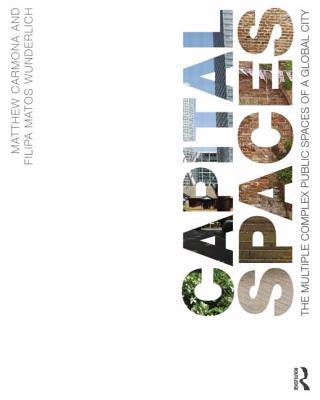
- Afhalen na 1 uur in een winkel met voorraad
- Gratis thuislevering in België vanaf € 30
- Ruim aanbod met 7 miljoen producten
- Afhalen na 1 uur in een winkel met voorraad
- Gratis thuislevering in België vanaf € 30
- Ruim aanbod met 7 miljoen producten
Capital Spaces
The Multiple Complex Public Spaces of a Global City
Matthew Carmona, Filipa WunderlichOmschrijving
In recent years it has become common-place to hear claims that public space in cities across the globe has become the exclusive preserve of the wealthy and privileged, at the expense of the needs of wider society. Whether it is the privatization of public space through commerical developments like shopping malls and business parks, the gentrification of existing spaces by campaigns against perceived anti-social behaviour or the increasing domination of public areas by private transport in the form of the car, the urban public space is seen as under threat.
But are things really that bad? Has the market really become the sole factor that influences the treatment of public space? Have the financial and personal interests of the few really come to dominate those of the many?
To answer these questions Matthew Carmona and Filipa Wunderlich have carried out a detailed investigation of the modern public spaces of London, that most global of cities. They have developed a new typology of public spaces applicable to all cities, a typology that demonstrates that to properly assess contemporary urban places means challenging the over-simplification of current critiques. Global cities are made up of many overlapping public spaces, good and bad; this book shows how to analyze this complexity, and to understand it.
Specificaties
Betrokkenen
- Auteur(s):
- Uitgeverij:
Inhoud
- Aantal bladzijden:
- 320
- Taal:
- Engels
Eigenschappen
- Productcode (EAN):
- 9780415527095
- Verschijningsdatum:
- 6/09/2012
- Uitvoering:
- Paperback
- Formaat:
- Trade paperback (VS)
- Afmetingen:
- 218 mm x 274 mm
- Gewicht:
- 1138 g

Alleen bij Standaard Boekhandel
Beoordelingen
We publiceren alleen reviews die voldoen aan de voorwaarden voor reviews. Bekijk onze voorwaarden voor reviews.











